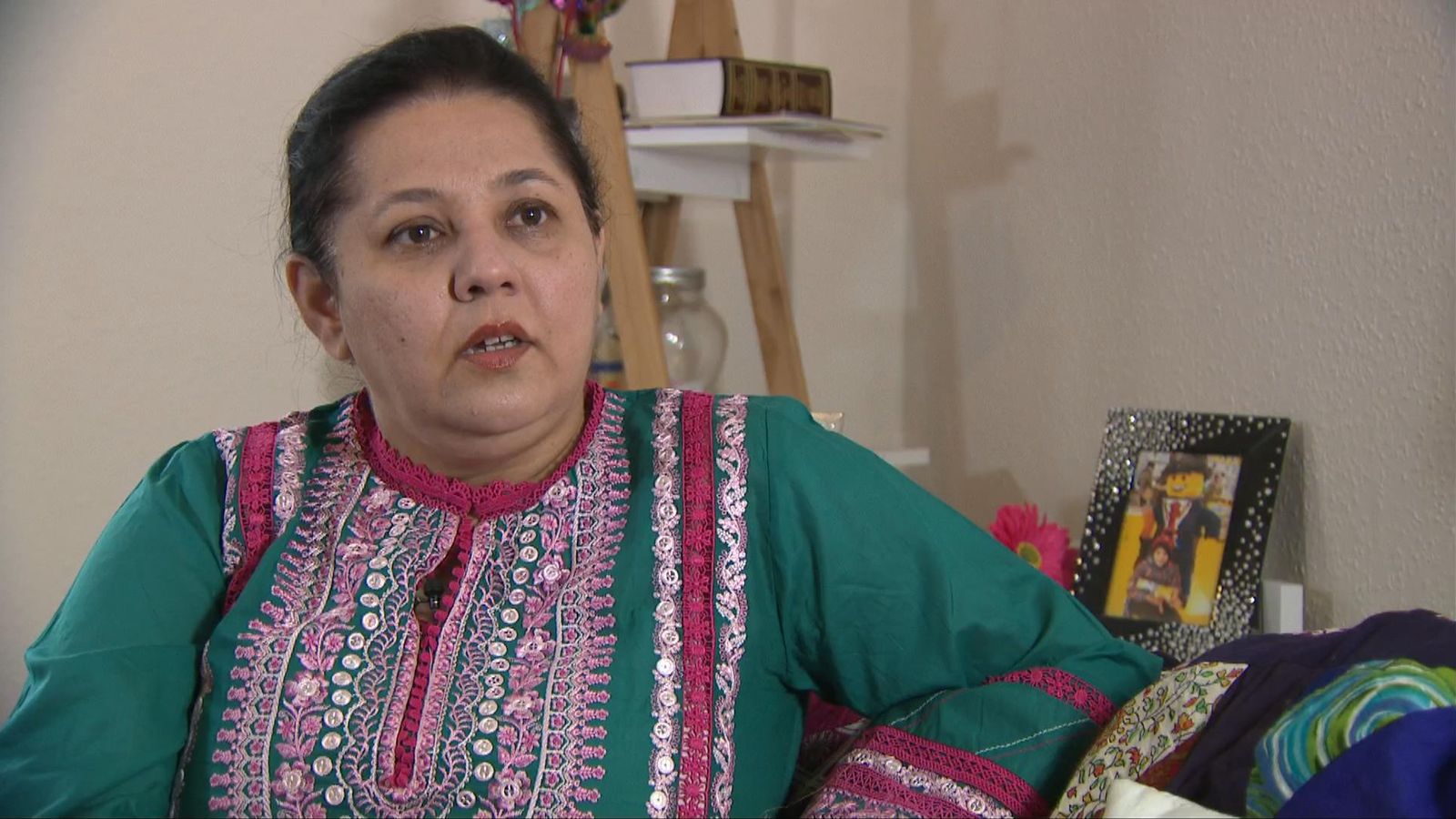Woman whose ex broke her jaw and nose in street ‘has not received penny in child maintenance in a decade’

Amid the cost of living crisis, the number of domestic abuse survivors applying to the government’s Child Maintenance Service to ensure their ex-partners pay to support their children has reached record levels.
But with more than a third of parents who owe money under the scheme failing to stump up anything, campaigners argue the system is regularly used as a means of continuing economic abuse and coercive control – and needs urgent reform.
Tayyaba Siddiqui escaped her abusive former partner when her son was one, after months of constant abuse. A decade later, she still wears a panic alarm.
“When I was 32 weeks pregnant he broke my arm,” she told Sky News.
“There’s a 10-inch plate in my hand now. One day he beat me on the street – my jaw was broken and my nose.
“He was arrested but after six months [in prison] he came out and he came to my place again.
“I got a restraining order – he broke the restraining order three times.”
For Tayyaba, life as a single mum is a daily struggle to make ends meet.
Her ex has never paid a penny towards supporting their son and while she clearly wants no direct contact, she has had no success forcing him to pay through applying to the government’s Child Maintenance Service either.
She said: “Right now, when the cost of living is so high, that money is so needed. It’s my son’s right.”
Tayyaba is not alone. Amid the cost of living crisis, a record 17,300 survivors of domestic abuse applied to the Child Maintenance Service for help from April to June this year.
But a third of parents who are meant to be paying to support their children through the scheme – a total of 60,100 – failed to stump up anything at all.
Some £20m owed to children from a non-resident parent went unpaid during that three-month period alone. Over the past 10 years since the current system was set up, the total debt has risen to £494m.
The Public Accounts Committee has said the system is open to being “played” by abusers and called for more work to be done to identify vulnerable cases.
Victoria Benson, chief executive of Gingerbread, a charity which supports single parent families, said: “We are really concerned the CMS doesn’t support survivors of domestic abuse.
“We hear a lot of stories from people who phone our helpline or who speak to us, where they feel their ex partner is using the CMS to perpetuate the abuse, to perpetuate coercive control.
“They’ll make threats to delay child maintenance or just pay it in dribs and drabs, or maybe create such an atmosphere of fear that the resident parent is really worried about pursuing any child maintenance that is due to them, and often they don’t.”
Conservative MP Sally-Ann Hart, who spent 14 years as a magistrate in Hastings, was so shocked by the many cases in which non-payment was used as a means of ongoing financial abuse she is now bringing forward a private members bill to try and change the law.
It would force the Child Maintenance Service to automatically collect the money from an abusive partner – via their employer or from their universal credit payments, for example – without first encouraging the victim to seek a direct personal arrangement.
Mrs Hart said: “It means the victim is not at risk of ongoing domestic abuse by financial means or coercion when it comes to child maintenance payments.
“It’s so important that we allow women to be able to live without fear with their children once they’ve left someone who has abused them.”
The MP said the government is supporting her bill but believes the Department of Work and Pensions should be doing more with its existing enforcement powers, which include confiscating passports, driving bans, and prison sentences.
She added: “We’ve got the enforcement powers – we should bloody well use them.”
For some women, the consequences have been tragic. In 2017, 33-year-old Emma Day was murdered by her ex-partner following a row over unpaid child maintenance.
A domestic homicide review carried out afterwards concluded the current response of the Child Maintenance Service to domestic abuse victims could heighten the risk to them when making a CMS application.
A report into the case commissioned by the government was due to be published in the spring.
Sky News understands its recommendations are under review by the Department of Work and Pensions, but campaigners say those findings are needed as a matter of urgency.
Ms Benson said: “The underlying assumption the CMS seems to operate on is that partners and ex-partners should work together in the best interests of the child – and of course most separated and divorced partners do that.
“But that assumption is really dangerous when abuse is involved – in the case of Emma Day it cost her her life… we really need to know that changes are going to be made so nobody else will get killed or injured or hurt as a result of the CMS.”
The Department of Work and Pensions told Sky News: “Tackling domestic abuse is a priority we take extremely seriously, and improving the response to economic abuse is integral to this.
“All child maintenance case workers undergo mandatory training to identify and support domestic abuse victims and can help them to set up a payment arrangement safely, and we continue to work on strengthening our enforcement powers for non-payment.
“These include deducting cash from a wide range of bank accounts, seizing goods, forcing the sale of a property, disqualification from driving, removal of passport or a prison sentence and soon, curfew orders.”
